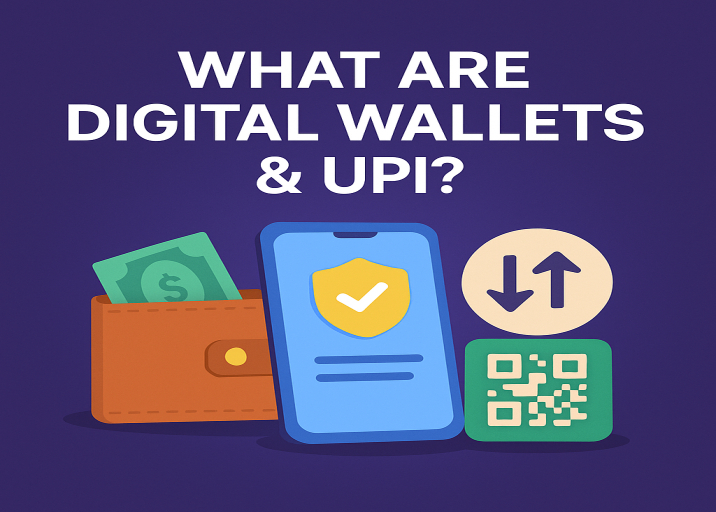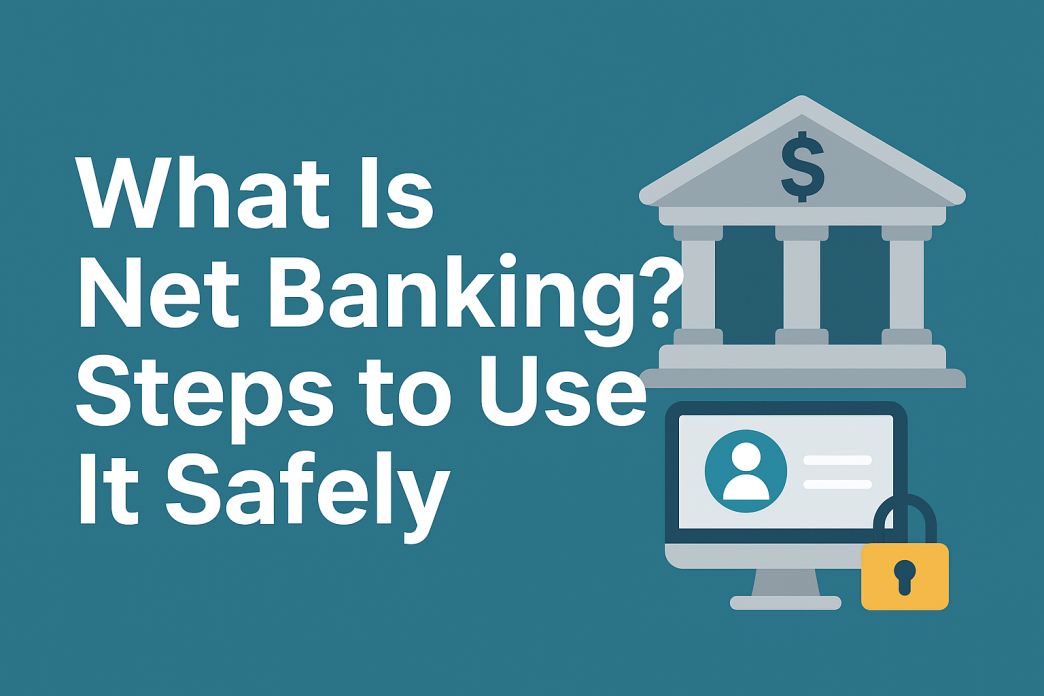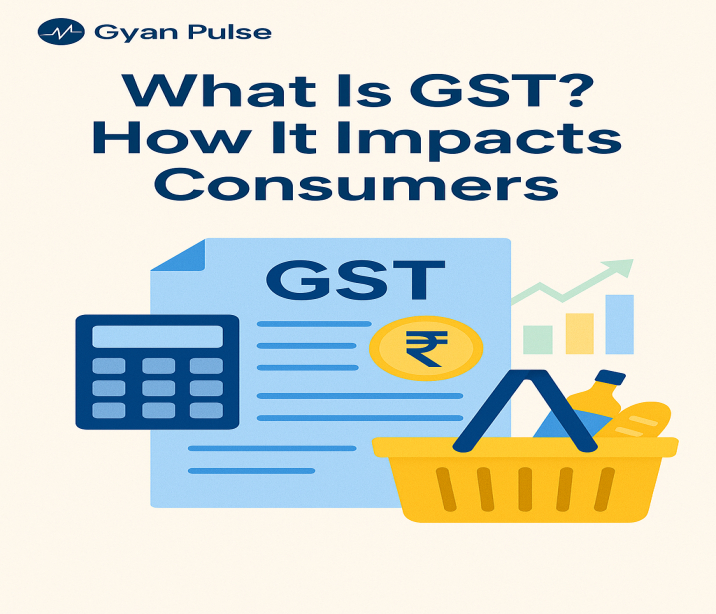What is UPI and Digital Wallets? Top Safety tips you should know, Full details 2025 Updated
What is UPI and Digital Wallets? Top Safety tips you should know, Full details 2025 Updated
What is UPI and Digital WalletsUPI and Digital Wallets
India has witnessed a digital revolution in the financial sector in recent years, and at the center of this transformation are Digital Wallets and UPI (Unified Payments Interface). With just a few taps on a smartphone, people can now pay for groceries, book movie tickets, recharge phones, or transfer money instantly. But as convenient as these tools are, understanding how they work and how to stay safe while using them is equally important.
Table of Contents
What Are Digital Wallets?
A Digital Wallet is a virtual version of a physical wallet. It stores your money in digital form and allows you to make online or offline payments without using cash or physical cards. These wallets can be linked to your bank account, debit/credit cards, or even topped up with money directly.
Popular Digital Wallets in India
- Paytm
- PhonePe
- Google Pay (GPay)
- Amazon Pay
- Mobikwik
- Freecharge
These platforms offer a wide range of services like bill payments, shopping, bookings, and fund transfers. Some wallets also offer cashback and rewards for regular usage.
What is UPI (Unified Payments Interface)?
UPI (Unified Payments Interface) is a quick and secure money transfer system launched by India’s National Payments Corporation (NPCI). It allows users to transfer money directly from one bank account to another using just a mobile phone and a UPI ID or QR code.
UPI is integrated into many apps, including:
- BHIM UPI
- Google Pay
- PhonePe
- Paytm
- Cred
- Bank apps (like SBI YONO, HDFC MobileBanking, etc.)
Key Features of UPI
- Instant bank-to-bank money transfers
- Works 24×7, even on holidays
- No need to share sensitive bank details
- Safe and regulated by RBI and NPCI
- Minimal or no transaction charges
Why is Security Important?
While Digital Wallets and UPI are convenient and fast, they are also vulnerable if not used carefully. Cybercriminals often try to fool users through fake calls, phishing messages, or harmful apps that steal personal information. That’s why knowing how to stay secure is essential.
Safety Tips for Using Digital Wallets and UPI
1. Use Official Apps Only
Always download apps from trusted sources like the Google Play Store or Apple App Store. Avoid downloading from unknown links or third-party websites.
2. Enable Screen Lock and App Lock
Set a strong PIN or biometric lock for your phone and payment apps to prevent unauthorized access.
3. Never Share UPI PIN or OTP
Your UPI PIN and OTP are confidential. No bank or payment app will ever ask for it. If someone asks, it’s a scam.
4. Beware of Fake UPI Links and QR Codes
Scammers may send you fake payment requests or QR codes. Always double-check the recipient and never scan random QR codes.
5. Update Apps Regularly
Ensure your wallet and banking apps are up to date. Developers release updates to fix bugs and improve security.
6. Avoid Public Wi-Fi for Transactions
Public Wi-Fi is not secure. Avoid making payments while connected to open networks in cafés or airports.
7. Set Transaction Limits
You can limit your UPI transaction amount per day using your banking app for extra safety.
8. Check Transaction History Frequently
Always check your wallet and bank account regularly to make sure no unknown payments have happened. Report any unknown transactions immediately.
What to do in Case of Fraud?
If you suspect fraud:
- File a complaint with cybercrime.gov.in
- Call your bank or wallet customer care immediately
- If you spot any suspicious activity, report it quickly through the UPI app or directly on the NPCI website to get help fast.
Acting quickly increases your chance of recovering the lost amount.
Final Thoughts
Digital Wallets and UPI have completely changed how people in India send, receive, and spend money, making payments quicker and smarter. They are fast, easy, and widely accepted. But just like carrying cash, using them safely is your responsibility. With the right habits and alertness, you can enjoy the benefits of digital payments without risking your hard-earned money.
Learn more about Finance
![]()




